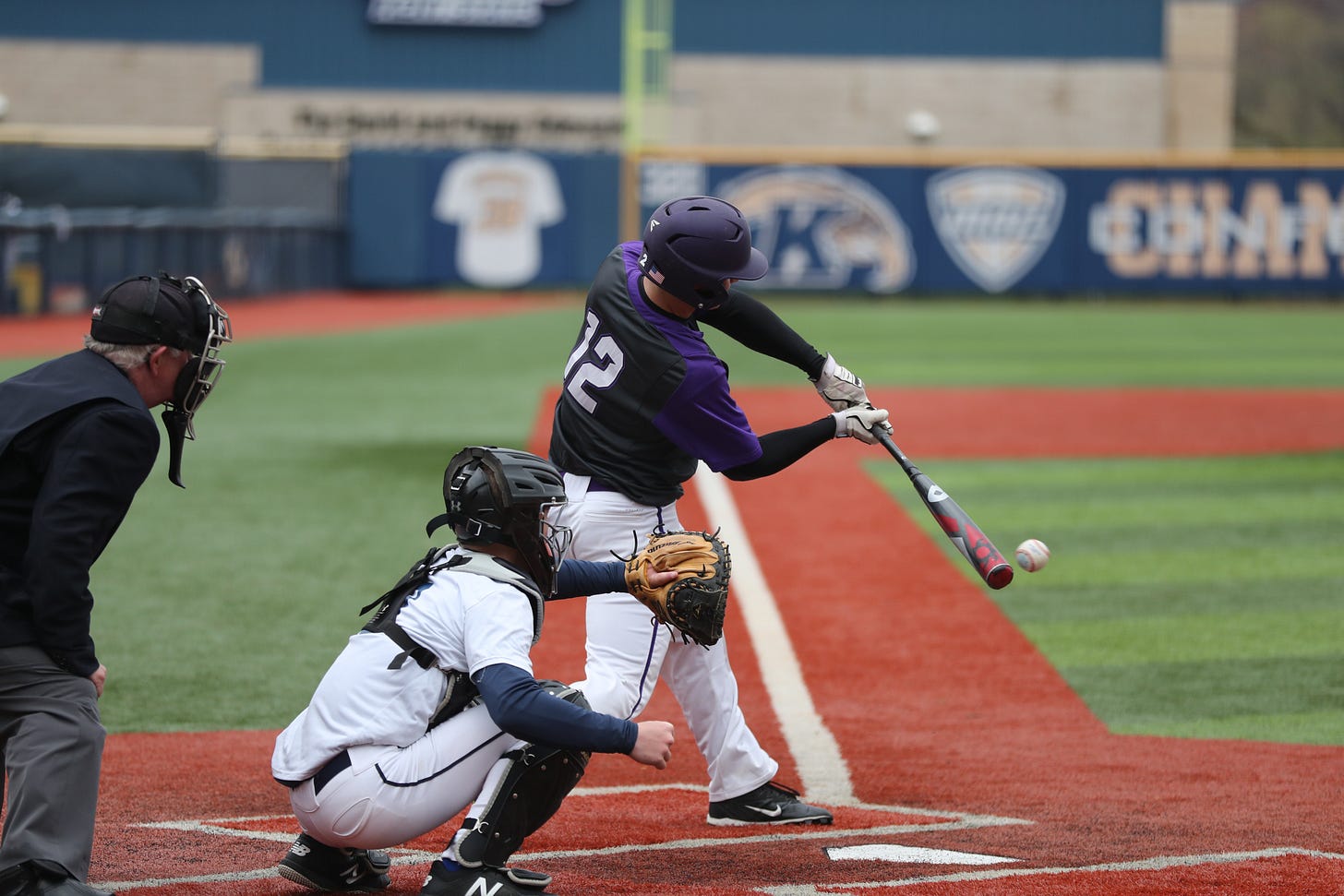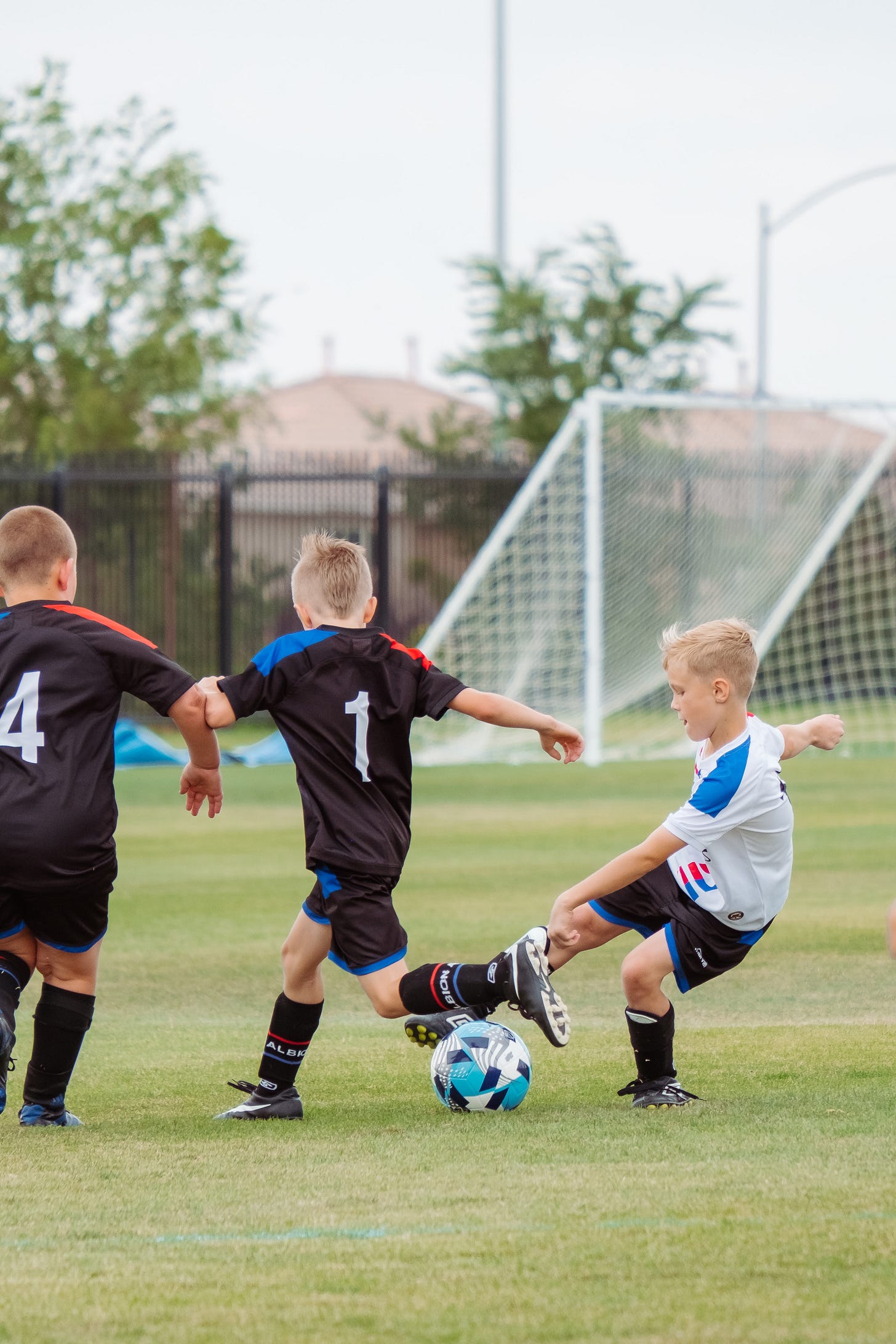Managing Expectations: The Forgotten Guiding Principle To Performance At Full Potential.
Without the ability to manage expectations, young athletes will struggle with good performance when they want it most.
“We are not seeing a situation as it truly is if we have expectations”
- author unknown
Sport participation quickly brings expectations. At a very young level, the expectation can be to have fun and try and new activity. As kids get older, and develop physical skills, those expectations often change.
If a young athlete struggles with the skill, the fun becomes harder because the expectation is to hit the ball or score a goal. When that does not happen, the athlete is left to question what they did wrong.
The expectation around winning rears its ugly head too fast in youth sport. So many end up disappointed when the expectation was set to “win”.
“The human brain likes knowing what’s going to happen” – Coach Doug Mckeen
Expectations are a strong belief that something will happen.
Many in sport will promote the narrative that you must believe in your goal before you achieve it. Combined with practicing and playing for thousands of hours, mastery will be the outcome. Yet, is this realistic if our young athletes do not know how to manage expectations?
It depends.
It depends on what the expectations are.
If the expectation is to have an opportunity to play and see how their preparation does in competition, then the brain is more likely to see this as manageable.
If the expectation is to win, then there is likely an outcome that will be disappointing at some point. Uncertainty creeps in, the brain gets confused and fun is not had.
Coach Doug Mckeen has been working with athletes of all ages for over 30 years. He most enjoys working with college to pro level athletes who play baseball. He works primarily on the hitting side in developing the patterns and skills for success around effortless hitting. He is a brain-based coach and not a mechanics coach.
While many hitting coaches spend 100% of their time on mechanics, Coach Doug works 90% of the time on mental training. Developing the skills within the brain around vision, tracking and expectations that arms the athlete with the mental tools to perform to their full potential. Coach Mckeen is the first to admit that mechanics are important however, as athletes progress to higher levels the physical skillsets are very similar. The first-year college athlete shows up for fall camp and finds out 4 others are at his or her position with very similar skills. Without mental training, some of these athletes will struggle because their performance will not meet their expectations. Likely this has never happened before and this becomes uncharted territory to start a college career. Or perhaps it is the athlete going pro after many years of success leading to that point. Or even a young 14 year-old struggling to duplicate what he/she can do in practice during the tryout process or in a game situation.
For Coach Mckeen performing to full potential at the plate in baseball means putting a barrel on the ball and hitting it hard. He does not define it as a hit or home run. The logic is that if you put the barrel of the bat on the ball, the goal has been met. The rest is somewhat out of your control.
Why?
In baseball, getting a hit often has little to do hitting the ball hard. Sometimes it does. But double plays are most often a result of a hard hit ball. Does that mean the athlete has failed if they hit into a double play?
Expectations.
When asked, the great college baseball coach Augie Garrido had this to say about what his expectations were as a coach?
I have eliminated that word from my vocabulary. Expectations are a false reality that have nothing to do with goal setting or learning; they’re just momentary comments given as a result of a thought that somebody wants, not about the process. In the process, there is no fear. In the results is where all the fear is, because you can’t control it.

We have used baseball as an example, but this applies to all sports and athletes. Coaches and parents this is especially critical to internalize if you want to support your young athletes and help them develop.
When we talk about managing expectations in the context of sport, we are talking about the mental side of the game. The game “between the ears”. That means we are referring to “mental health”.
There is so much stigma around mental health and what it means in life and in sports, that it becomes important to understand how they are interconnected.
Everything that happens on the field of play (and life) affects our mental health. When things go well, we feel great. When they don’t, we are disappointed. When we get praised for performance, we also feel great. When we make a mistake or don’t perform to expectations we often criticized. All of this has an impact.
A bigger impact than most realize.
Our friend Ben Fanelli of Heroic Minds has a great take on expectations and mental health around peak athletic performance.
Ben’s perspective: The resources athletes build up in life experience outside of sport are the ones that most help to manage performing under the microscope.
Let’s face it, young athletes are too quickly put under the microscope of performing with high expectations. There are 8 and under travel teams and 14 year-old competitors at the Olympics. The narrative of being ultra committed and focused in order to succeed are at the root of early sports specialization and are yielding negative results on participation rates and our athletes mental health.
It becomes very dangerous when a young athlete has 100% of their identify wrapped up in being that athlete. Why? Because when things don’t go according to plan, and they inevitably do, they struggle. Dealing with the struggle is part of the journey, yet they are not armed with the tools to do so. Those tools come from experiences outside of sport, according to Fanelli.
It happens all the time.
· Injury?
· Not playing enough due to coach’s choice?
· Did not make the team?
· Strike out?
· Lose the game?
This happens at every game and most levels. Someone is impacted by one or more of the above. This was not the expectation.
Fanelli mentions is his video essay below that this is where the athletes resources need to be strong to be able to handle such situations. Not only when things don’t go according to expectation but to perform to full potential in the first place. He uses Simone Biles courageous actions during the Olympics as an example.
Coach Mckeen has a process he works on with his athletes who play baseball. Practice tracking the ball to the bat. Build a routine around that process. This trains the brain to know what to expect. Clear your mind of expectations and see what happens when you apply it. Treat the competition as play. In the case of hitting, if the athlete has connected the ball to the barrel of the bat, then mission accomplished.
This allows the body to perform in a relaxed state. The relaxed state is free of expectations and leads to performance closer to full potential as opposed to a state of nervousness or tightness. Coach M has many, many success stories that this process works well.
Again, this process can apply to all sports and athletes. This is brain training. Mental training. It does not replace the physical training, it enhances physical skill preparation and is essential when competition is most intense.
The bad news for coaches and parents is that we are very influential on the expectations carried to the field, court or rink. Social media and what young people see in their world also puts unreasonable expectations on the purpose of play and competition.
The good news? More and more information is available at our fingertips on how to monitor and set expectations so our athletes have fun and perform in a relaxed state.
You can find out more about Coach Doug Mckeen’s work with athletes who play baseball here.
Ben Fanelli expands on this concept of building resources to assist with performance at a high level here:



